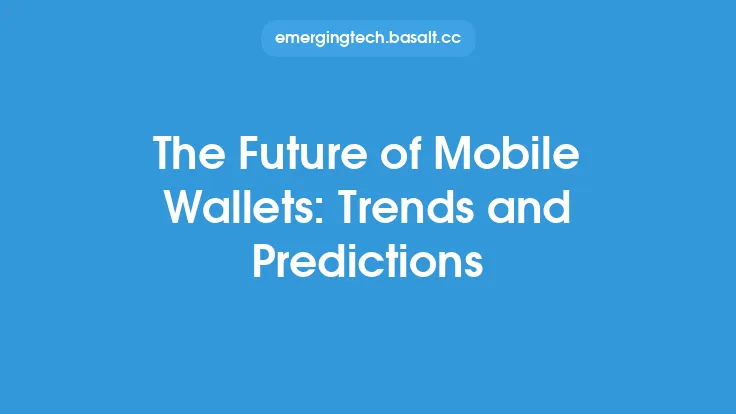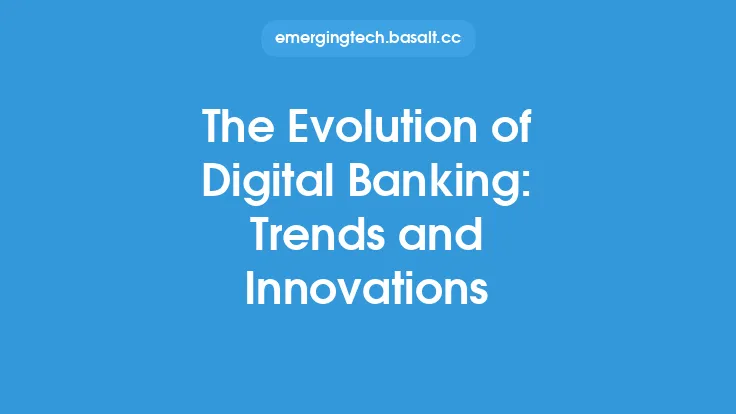The blockchain security landscape is constantly evolving, with new trends and innovations emerging to address the growing threats and challenges in the industry. As the use of blockchain technology becomes more widespread, the need for robust security measures has never been more pressing. In this article, we will explore the future of blockchain security, highlighting the key trends and innovations that are shaping the industry.
Introduction to Blockchain Security Trends
The blockchain security landscape is influenced by a range of factors, including advances in technology, changes in regulatory requirements, and the increasing sophistication of cyber threats. Some of the key trends that are currently shaping the industry include the adoption of artificial intelligence (AI) and machine learning (ML) technologies, the development of more secure consensus algorithms, and the growing use of blockchain-based security solutions. These trends are expected to continue in the future, with new innovations and technologies emerging to address the evolving security needs of the industry.
The Role of Artificial Intelligence in Blockchain Security
Artificial intelligence (AI) and machine learning (ML) are playing an increasingly important role in blockchain security, with many organizations using these technologies to detect and prevent cyber threats. AI-powered security systems can analyze vast amounts of data in real-time, identifying potential security risks and alerting administrators to take action. ML algorithms can also be used to develop predictive models of cyber threats, allowing organizations to take proactive measures to prevent attacks. The use of AI and ML in blockchain security is expected to continue to grow in the future, with these technologies becoming an essential part of any robust security strategy.
The Development of More Secure Consensus Algorithms
Consensus algorithms are a critical component of blockchain technology, allowing nodes on a network to agree on the state of the blockchain. However, many consensus algorithms are vulnerable to cyber threats, such as 51% attacks, which can compromise the integrity of the blockchain. To address this issue, researchers are developing more secure consensus algorithms, such as proof-of-stake (PoS) and delegated proof-of-stake (DPoS). These algorithms are designed to be more energy-efficient and secure than traditional proof-of-work (PoW) algorithms, and are expected to play a key role in the future of blockchain security.
The Growing Use of Blockchain-Based Security Solutions
Blockchain-based security solutions are becoming increasingly popular, with many organizations using these solutions to protect their networks and data from cyber threats. These solutions use blockchain technology to create a secure and decentralized network, allowing organizations to share data and resources in a secure and trusted manner. Blockchain-based security solutions are expected to continue to grow in popularity in the future, with many organizations using these solutions to address a range of security challenges, from data protection to identity verification.
The Importance of Quantum Computing in Blockchain Security
Quantum computing is a new and emerging technology that has the potential to revolutionize the field of blockchain security. Quantum computers are capable of processing vast amounts of data in parallel, making them potentially much faster than classical computers. However, this also means that quantum computers could potentially be used to break many of the encryption algorithms currently used in blockchain technology. To address this issue, researchers are developing new quantum-resistant encryption algorithms, such as lattice-based cryptography and code-based cryptography. These algorithms are designed to be secure against quantum computer attacks, and are expected to play a key role in the future of blockchain security.
The Future of Blockchain Security: Challenges and Opportunities
The future of blockchain security is likely to be shaped by a range of challenges and opportunities, from the growing sophistication of cyber threats to the development of new technologies and innovations. Some of the key challenges that the industry is likely to face include the need for more robust security measures, the growing demand for quantum-resistant encryption algorithms, and the increasing importance of artificial intelligence and machine learning in blockchain security. However, the industry is also likely to see many opportunities, from the development of new blockchain-based security solutions to the growing use of blockchain technology in a range of industries and applications.
Conclusion
In conclusion, the future of blockchain security is likely to be shaped by a range of trends and innovations, from the adoption of artificial intelligence and machine learning technologies to the development of more secure consensus algorithms and the growing use of blockchain-based security solutions. As the industry continues to evolve, it is likely that we will see many new challenges and opportunities emerge, from the need for more robust security measures to the development of new technologies and innovations. By understanding these trends and innovations, organizations can better prepare themselves for the future of blockchain security, and take advantage of the many opportunities that this technology has to offer.





